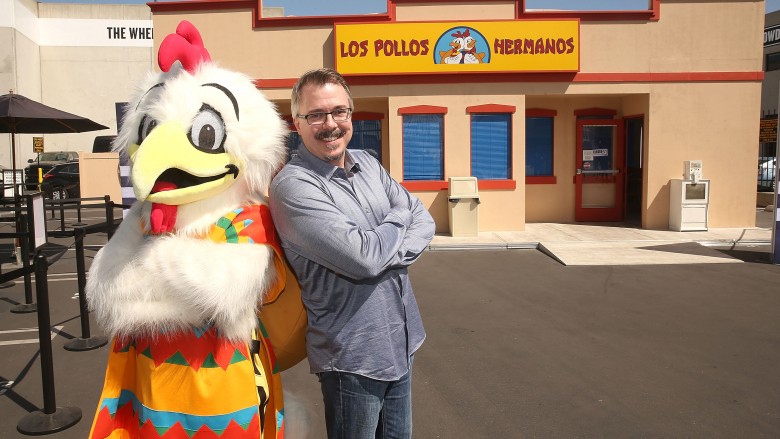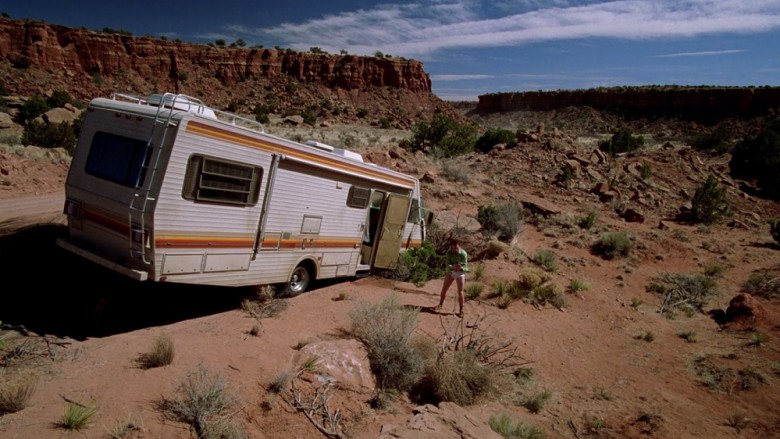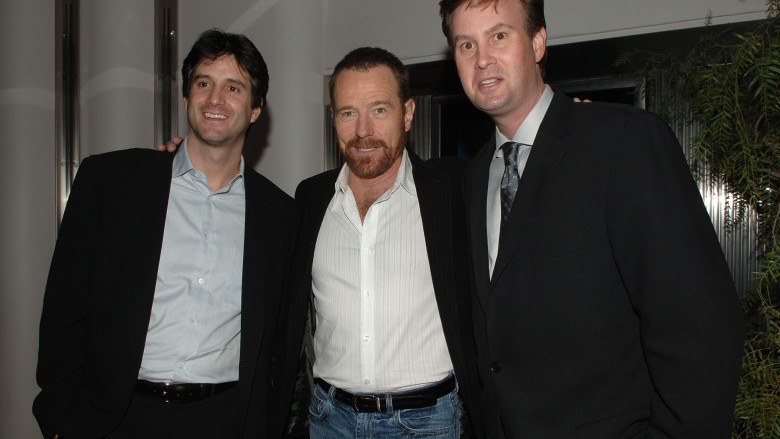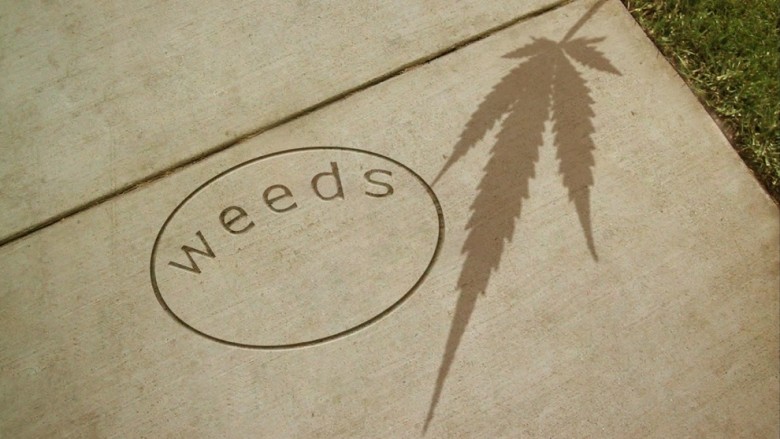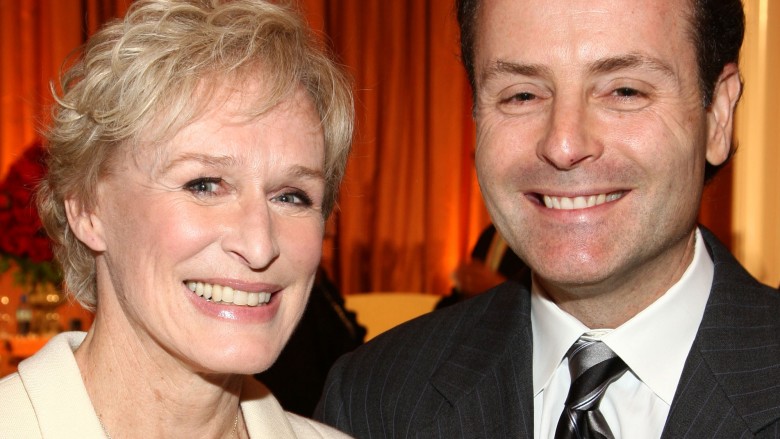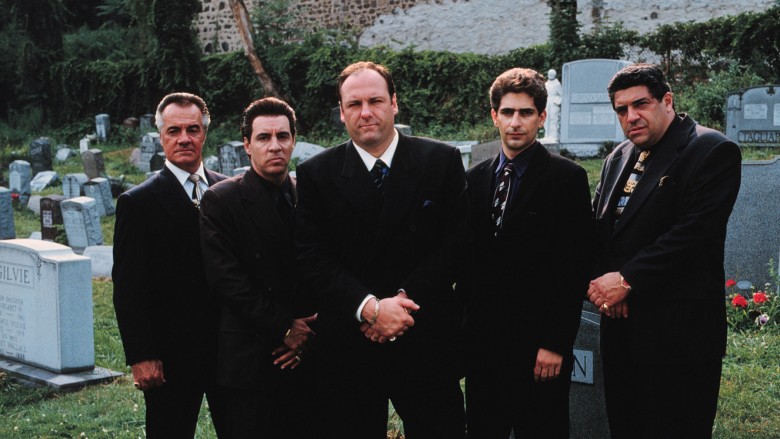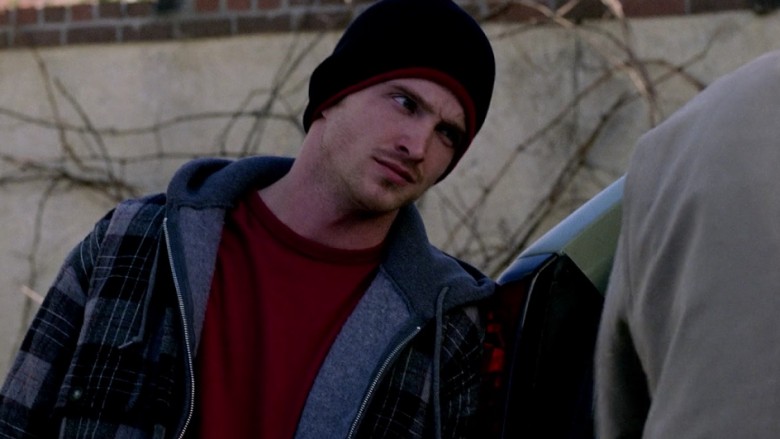Why Breaking Bad Almost Didn't Happen
The period from 2000 to the present is often referred to by the press and entertainment critics as the golden age of television. The TV drama, not typically a bastion of challenging programming, began seriously upping its game during this time, beginning with HBO's The Sopranos, and it hasn't stopped since. Among the landmark series to be produced during this golden age, from Lost to Mad Men to The Wire, AMC's Breaking Bad stands as perhaps the pinnacle of the hour-long drama form. But its brilliance wasn't quite so obvious when it was still in the conceptual stage, and it took a great deal of persistence, determination, and luck to even bring it to air.
Vince Gilligan's career was full of false starts
It's safe to say that before 2008, Vince Gilligan wasn't the hottest commodity in Hollywood. Throughout most of the '90s he was a struggling screenwriter in a sea of thousands of them, with only a couple modest successes to his name: the 1993 Dennis Quaid/Debra Winger rom-com Wilder Napalm and the 1998 Drew Barrymore comedy Home Fries. He'd managed to find regular work on the classic TV series The X-Files for several seasons, until that show was canceled in 2002. He then spent the next six years trying to develop a television series of his own—but his first efforts weren't quite so well-received.
First there was The Lone Gunmen, co-created with X-Files creator Chris Carter, a conspiracy-themed series that only lasted for 13 episodes before being canceled by Fox. Then there was Battle Creek, about the partnership of a police officer and an FBI agent, which nobody was interested in at all. (Strangely, Battle Creek would finally be picked up by CBS in 2015 ... but it was canceled after 13 episodes.) Gilligan remembers the period as one of the worst of his life, noting that, "as a writer, you always want to be working on something that has a hope in hell of being made." Nevertheless, his next idea—the one about the meth-cooking high school teacher—didn't exactly seem to fit that description either.
It started as a joke
In the middle of this low period, Gilligan recalls idly talking on the phone with fellow former X-Files scribe Tom Schnauz, who would go on to be a writer on Breaking Bad. Low on work, they were lobbing pitch-dark jokes at each other about what they should do next: "Should we be greeters at Wal-Mart? Should we put a meth lab in the back of an R.V. and cook meth and drive around the Southwest? And that image ... I don't know, it just stuck with me."
That particular joke had come from Schnauz, who had recently read an article about a guy who had done exactly that, and Gilligan (whose initial response was "that sounds like a good way to see America") found himself trying to figure out why anyone would do such a thing. We all know where this train of thought eventually led, and it's interesting to note that if Schnauz hadn't read that article—or even if he just hadn't mentioned it to Gilligan—it's almost certain that Breaking Bad as we know it today wouldn't exist.
The first pitch didn't go well
Of course, even given his inspiration, Gilligan's pitch didn't exactly blow executives away at first. Even Sony, the production company that picked up the series, probably would have been out if Gilligan hadn't gotten over the rocky start to his meeting with execs Zack Van Amburg and Jamie Erlicht. Van Amburg told The Hollywood Reporter: "He was talking about a character who had no joy in his life. He had no special skills and was living a very mundane existence. Oh, and then he gets cancer. ... Jamie and I were looking for the hidden cameras in the room and trying to figure out what was happening."
But Gilligan settled down and started talking in more general terms about the types of life-changing moments that can drive ordinary people to desperation, a condition he felt he could identify with. In the end, he sold Sony on his "Mr. Chips turns into Scarface" premise. It was an idea that hadn't been attempted in television before—having a main character begin the series as the unambiguous hero and end it just as unambiguously as the villain.
With the production company in place, the series just needed a network. While there were several that seemed like obvious fits, Breaking Bad would take an extremely long route to finally landing on AMC.
It was similar to another series
Gilligan's first big network pitch was to Showtime, which had developed a reputation for quirky but quality drama with series such as Queer as Folk and Dead Like Me. He recalls honing his pilot pitch: "it's something you do verbally, acting it out for various stone-faced executives. There's an art to it: Maintain eye contact, exude boundless enthusiasm, and never, ever refer to your notes." Just a few minutes into this presentation, the network's president chimed in with: "This sounds a lot like Weeds."
Gilligan had not yet heard of Showtime's recently debuted series about a pot-dealing suburban mom, and Amburg and Erlicht helped out when Gilligan asked if they knew of Weeds. "Oh, yeah, great show. But your thing is completely different. She deals pot and your guy deals crystal meth. Apples and oranges."
Needless to say, Showtime passed, although—in spite of their apparent similarities—the two shows turned out to have little in common. But Gilligan said if he had known of Weeds' existence when conceiving his show, he probably would have given up on the idea altogether.
FX passed to pick up other series
FX president John Landgraf is one of the savvier network TV executives, and his programming decisions have helped elevate FX from a bit player to a fairly major network. He's responsible for hit dramas such as Fargo, The Americans, and American Horror Story, but in 2005 he had just been promoted to his current post when he was pitched Breaking Bad. He also passed—a decision he obviously regrets in hindsight.
At the time, three of the network's series—Nip/Tuck, Rescue Me, and The Shield—revolved around "white, male anti-heroes," and Landgraf was already invested in the Glenn Close-starring Damages (which would run for five seasons) and Dirt (which would last only 20 episodes.) He stands by his decision to focus on showcasing quality female actors, while admitting, "Of course I wish that I hadn't passed on Breaking Bad."
HBO passed (for no real reason)
Of all the networks to take a pass on Gilligan's pitch, HBO might be the strangest. It arguably ushered in the current golden age with The Sopranos and had developed a sterling reputation for quality drama. But not only did the HBO meeting go poorly, Gilligan calls it the "worst meeting" he's ever had.
He explains, "a close second to the victory of someone buying it in the room, is telling you in the room they're not going to buy it ... give you a quick no. ... People will leave you dangling on the end of a meat hook for days or weeks or months on end. ... That happened at HBO." He continued: "The woman we were pitching to could not have been less interested."
But then weeks of deafening silence followed. Nobody could even get HBO executives on the phone to give them a proper rejection. Fortunately, a "yes" was right around the corner at AMC—but even after the show finally found its home there, it was almost cut short in its infancy.
Gilligan almost went way darker
Some of Gilligan's ideas during all of this pitching had consistently turned executives off, and he intended to keep them after the series was actually put into production. In his initial conception of the show, three main characters would have died during the first season alone—Hank, Jesse, and Walt Jr., who would have been killed in a booby trap set by a drug dealer. These axed plot points paint a picture of a Walter White who veers much more quickly into criminal behavior. The death of Walt Jr. would have been retribution for Walter torturing the drug dealer, and Jesse's death would have caused Walter to seek violent revenge.
A significant factor that caused Gilligan to rethink his main character's story arc was the writer's strike of 2007 and 2008. It shortened Breaking Bad's first season to seven episodes and probably saved both Hank and Walter Jr. from early graves. But Jesse's stay of execution was also due to a different factor—Aaron Paul's performance. Gilligan explains: "The writers' strike, in a sense, didn't save him, because I knew by Episode 2 ... just how good he is, and a pleasure to work with, and it became pretty clear early on that that it would be a huge, colossal mistake to kill off Jesse."
The absence of these characters and Walter's rather sudden transformation would have made Breaking Bad a very different show and almost certainly not the masterpiece it became. Bryan Cranston may never have gotten the chance to deliver one of the greatest performances of all time. And that's not just our opinion. If Sir Anthony Hopkins says it, you can take it to the bank.

